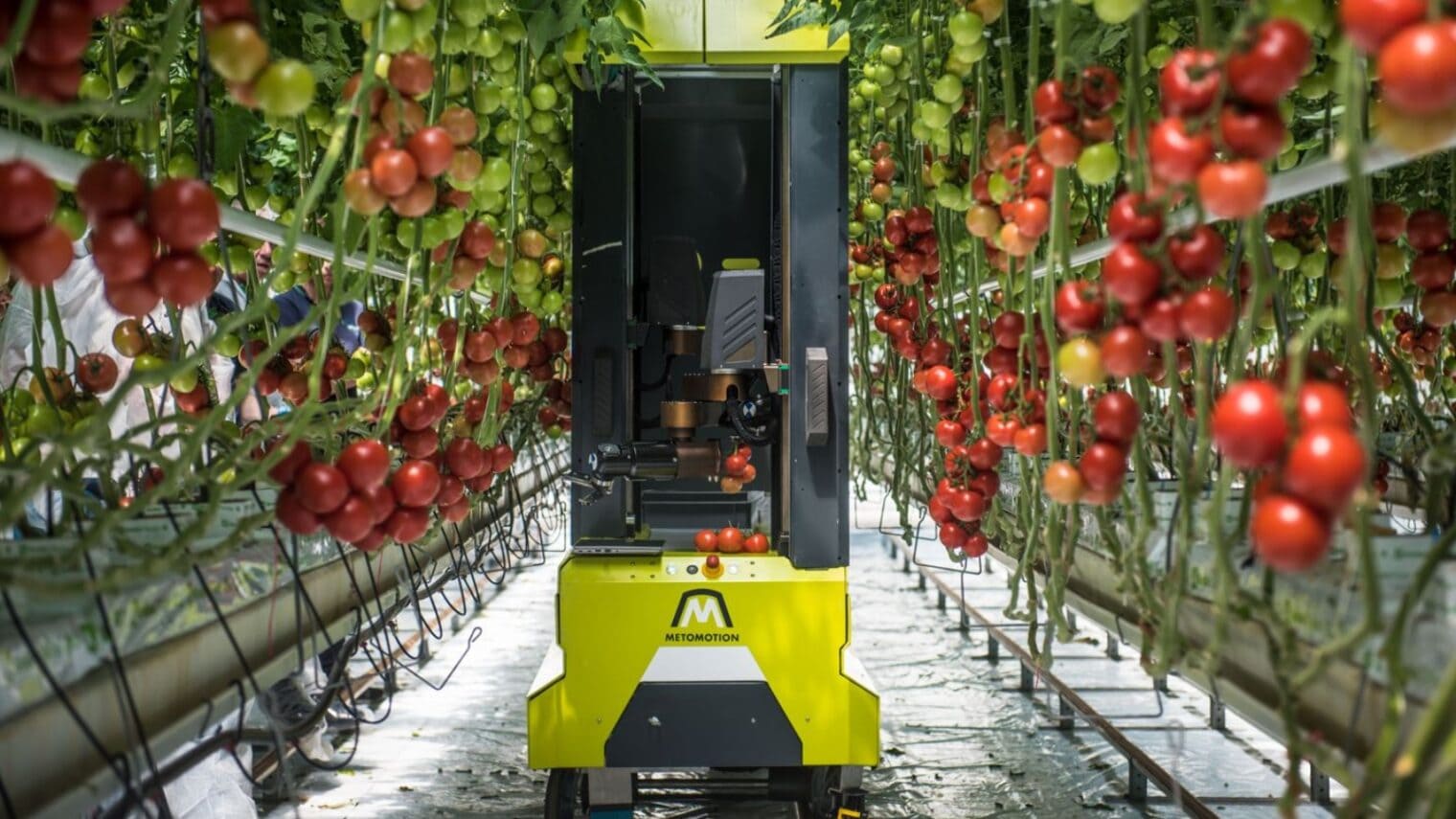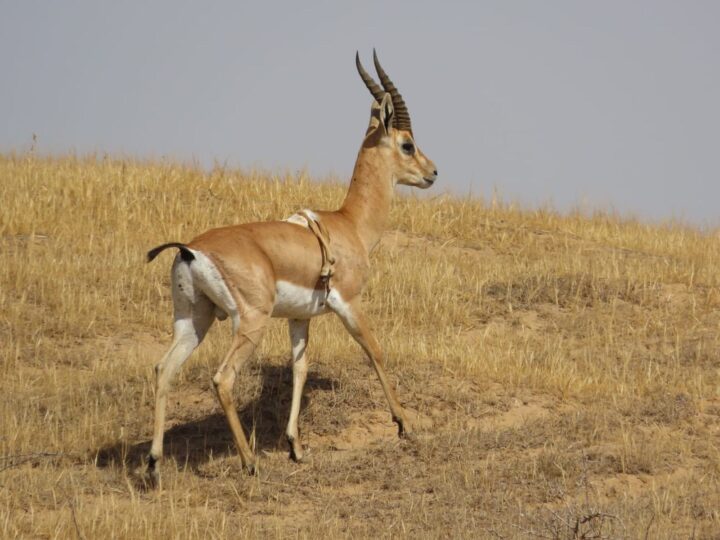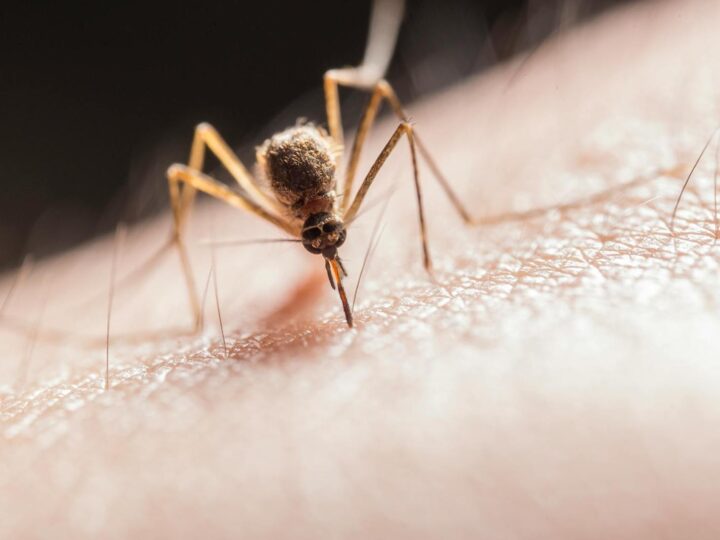Michael Amar, 48, is the director of agriculture at Kibbutz Alumim near the Gaza border in the southwest. About two years ago, Amar searched online for a technological solution to the chronic labor shortage in the kibbutz greenhouses that grow vegetables for Israeli schoolchildren.
He came across the Dutch distributor for a northern Israeli startup he’d never heard of: MetoMotion, which is using AI and robotics to replace human farm laborers.
Started in the Trendlines incubator and now located in Yokne’am Illit, MetoMotion developed its first robot, GRoW, to pick and pack tomatoes in the advanced greenhouses common in North America and Europe. The only harvesting robot with two arms, GRoW won the GreenTech Robot Challenge in 2022.
Amar’s inquiry came just as the company was seeking a place to set up an R&D center in Israel to develop additional product lines. It took some time, but MetoMotion’s experimental greenhouse was completed at Alumim’s fields, a few hundred meters from the Gaza border, in late September.
The first plantings were to begin in early October.
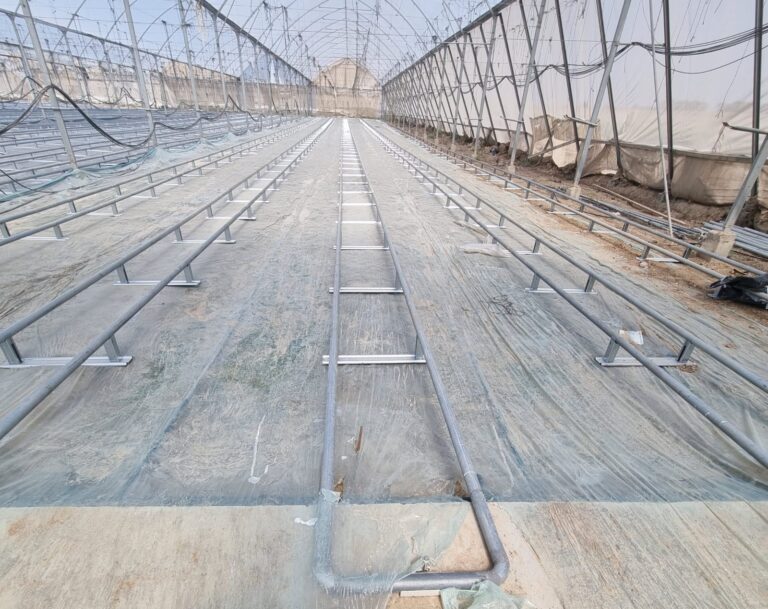
“We received approval from the Ministry of Agriculture for a pilot on five dunams,” said Amar. “We signed an agreement with MetoMotion, adapted the greenhouses, ordered seedlings — and everything was prepared to receive the first robot.
“Then the war began.”
Tragedy strikes
Early on the morning of October 7, Amar’s son Nitai, 22, a captain in the IDF, was awakened by a message from the army coordination center about incoming missiles.
Nitai quickly jumped into his father’s car and sped toward the Southern Regional Division base where he was the deputy engineering officer. He was killed in a battle there later that same day.
Back at home, Nitai’s father and his agricultural team were fighting, too.
They defended the kibbutz against Hamas terrorists who came in the back fence leading to the vegetable, dairy and chicken farms as well as the new R&D greenhouse.
Amar and his men stopped the terrorists from entering the residential area of the kibbutz. But tragically, about 20 Thai farm workers were killed in a firefight with the infiltrators.
Eran Schlissel, manager of the Alumim vegetable company, sustained a gunshot wound.
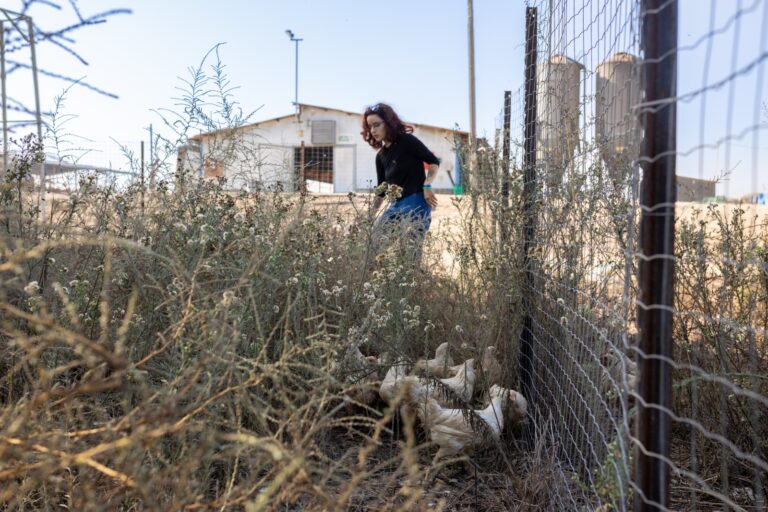
Shiva visit
MetoMotion CEO Adi Nir and his team had gotten close with Amar’s team at Alumim. They went to pay their respects to the Amar family, who were sitting shiva for Nitai at the hotel in Netanya to which Alumim families were evacuated.
“During our visit, he already started to talk with us about rebuilding the project,” says Nir. “He even told us how his son liked technology.”
About two weeks later, Amar invited Nir to the evacuation hotel for a meeting with his agricultural team.
“We were sitting with people who had experienced unbelievable horror on October 7, and all they could talk about was rebuilding and continuing what they started,” Nir tells ISRAEL21c.
Nobody knows the condition of the newly outfitted R&D greenhouse at Alumim. It is not accessible because it is now in a closed military zone, and it may have been burned down like so much else on the kibbutz.
Amar and his team had discussions with the agriculture staff at nearby Kibbutz Be’eri, the community that suffered the most devastation of life and property in the attacks of October 7.
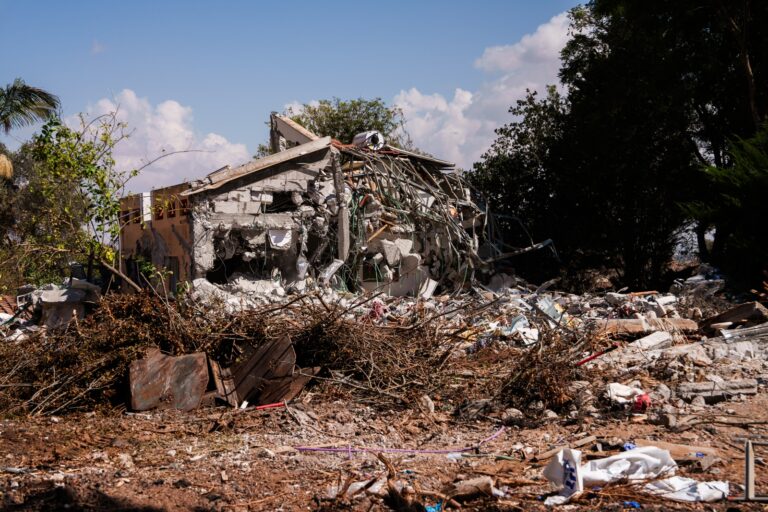
“We turned to a mutual friend, Avida Bacher, the manager of field crops of Kibbutz Be’eri, and offered them the joint establishment of the [experimental MetoMotion] greenhouses,” said Amar.
“Before the war, we had discussions about collaboration between us. Now it is no longer a wish; it must happen. Avida himself lost his wife and son on October 7, and was injured. The doctors had to amputate his leg. I went to visit him in Sheba Hospital and we talked about our plan.”
A mission more than a business deal
Bacher told Amar that Kibbutz Be’eri has a big new greenhouse not yet in use, so it was decided to establish the R&D greenhouse there.
“We are now planning to meet at the Be’eri site to discuss how to move forward,” says Nir.
“For us, this partnership is much deeper than the usual business deal. It’s like a mission for us to help these guys. This is our small way to help and we hope it will come true. The story did not end yet.”
The stakeholders hope the government will provide funding for this project as part of an eventual compensation package for Gaza border farmers. But they are already putting the plan into motion.
“This is Zionism, rebuilding ourselves. We need to pick up our agriculture again and restart the project,” said Amar.
For more information on MetoMotion, click here.




